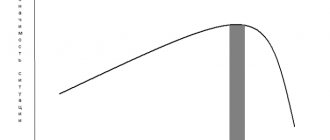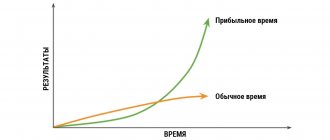Modern life is unthinkable without the Internet. People communicate using it, blog on social networks, play, watch movies, listen to music, work and much more. You can list the advantages of the Internet for a long time, but, unfortunately, there is also the other side of the coin - this is Internet addiction.
Internet addiction is a disease of the 21st century. It leads a person to the desire to constantly be on the Internet, to the inability to control his feelings.
Internet addiction is a problem in modern society
Over the past decade, more and more people have been using the Internet. Modern residents of our country access the World Wide Web every day to find information, work, and communicate. The Internet contains a huge amount of information on various topics, so it is used for work and business. Leisure activities are planned and carried out using it. Here you can meet new people and keep in touch with friends and family. With the help of the World Wide Web, it is possible to facilitate the selection and purchase of certain services and goods.
But the Internet can be harmful to a teenager if it is used irrationally. Internet addiction is a mental disorder in which behavioral disturbances are observed. In a pathological condition, a person is not able to leave the network in a timely manner. He has a constant obsessive desire to constantly log into the network.
Content:
- Psychological prerequisites for the formation of cyber addiction.
- The main types of cyber addiction.
- Clinical picture.
- The impact of cyber addiction on health.
- How to treat internet addiction:
5.1. Principles of psychotherapy. 5.2. Medication correction.
Abroad, people started talking about the problem of Internet addiction back in the mid-1990s. It was then, against the backdrop of general computerization, that psychologists drew attention to dramatic changes in the behavior of people spending most of their time in virtual reality. First of all, this affected the most vulnerable and psychologically immature part of the population - youth and adolescents. Now the issue of overcoming Internet addiction has become even more acute - not a single modern person can imagine life without a smartphone, tablet, laptop and other gadgets. But how can you differentiate between the use of new technologies for work or school and a serious addiction that requires treatment? How to recognize the problem in time and prevent its serious consequences?
Signs and symptoms of internet addiction
You can determine your dependence on the World Wide Web based on the corresponding signs. When pathology appears in a teenager, the behavior changes. They lose track of time. Children claim that they are online for only a few minutes, although in reality several hours pass. When problems arise in unreal life, the situation worsens. Teenagers want to protect themselves from existing troubles and therefore spend a large amount of time online.
With Internet addiction, a child completely ignores physiological needs. Such patients do not have the desire to eat, go to the toilet, or rest. Teenagers refuse to bear social responsibility in real life. They prefer to chat with a friend online rather than meeting him in person. Teenagers with Internet addiction neglect their studies. They have no other activities or hobbies other than spending time at the computer.
Clinical picture
You can suspect a cyber addiction in a loved one based on the following symptoms:
- obsessive desire to constantly check email, messages in instant messengers, social networks;
- people spend more and more time online, often miss work, university, deceive relatives, employers
- neglect of one’s own hygiene and the interests of family members for the sake of playing an Internet game, surfing, watching the news feed, etc. (there are cases when, while online, people forget even about food and drink);
- problems with work (due to frequent absenteeism and lateness, there is a high probability of dismissal), if we are talking about a teenager or student, academic performance decreases;
- complete loss of interest in everything around you, all real experiences are replaced by virtual ones;
- The amount of money spent on purchases or replenishing an account in an online game account is constantly increasing;
- time control problem.
If for some reason (even the most banal: temporary lack of electricity, gadget battery discharge, technical problems with the provider, etc.) there is no Internet, the addict begins to experience a kind of “withdrawal.”
Typically, such a “withdrawal syndrome” is accompanied only by psycho-emotional disorders: depressive mood, bouts of irritability, overt aggression towards others. The patient tries to correct the situation by any means (overloads the router or modem several times, looks for an outlet/charger, calls the provider’s support service). In some cases, psychosomatics are also “connected”: sweating, dizziness, headache, attacks of nausea, tremors, involuntary finger movements reminiscent of typing on a keyboard, etc. All symptoms disappear as soon as the addict is able to connect to the network again.
Features of Internet addiction
Internet addiction comes in various forms. Psychologists define 5 main types of addiction:
- Visiting social networks, forums, blogs. Dependence arises when a child needs continuous communication. Children who have no or poorly developed communication skills are at risk. Socialization of patients occurs through new acquaintances. The pathological condition is most often diagnosed in adolescence during hormonal changes. During this period, problems with real communication may arise, so teenagers prefer the virtual world.
- Information dependence. Pathology develops in people who need a continuous flow of information. A person constantly visits databases, websites and reads notes, articles and comments. The search for information has no specific purpose. The consequences of this dependence are loss of productivity and information overload.
- Gaming addiction. Most often it occurs in children who do not know what to do with themselves in their spare time. Excitement makes teenagers play games regularly, especially if they manage to win. This pathological process is observed in children with low self-esteem who cannot achieve success in real life.
- Game for money. If a person plays and gets money for it, then this leads to aggravation of the situation. The teenager strives to get a prize for the game and sits online for hours. This form of addiction leads to serious consequences.
- Cabersexual attraction. This type of addiction appears during hormonal changes in adolescents. They watch porn movies and have cybersex. At the same time, there is an emotional gap with real people. Pathology in adolescents arises from interest and lack of communication.
When Internet addiction appears, it is imperative to determine its type, which will allow us to develop an effective treatment regimen.
Symptoms of a developing problem
It is precisely because of the difficulty in diagnosing that psychologists advise paying attention to the manifesting symptoms of Internet addiction. Which of them are considered the most common? Psychologists have long associated the development of Internet addiction with hidden human complexes.
Wanting to prove to the whole world that he has achieved success, such a patient floods social networks with his photographs and reacts very violently to any criticism related to his personal views and status in society
Psychologists have long associated the development of Internet addiction with a person’s hidden complexes. Wanting to prove to the whole world that he has achieved success, such a patient floods social networks with his photographs and reacts very violently to any criticism related to his personal views and status in society.
For him, parting with his phone seems to be the most serious test in life, which cannot be accepted under any circumstances. Often a person does not part with the Internet source even at work, causing the wrath of his superiors.
Causes of Internet addiction
The pathological condition in childhood and adolescence is diagnosed under the influence of certain factors. The World Wide Web provides the opportunity to collect and store information. This arouses interest in it among many users. The first reason for Internet addiction is that parents give their child unlimited access to the computer. They believe that there is nothing wrong with this, and even find advantages. Parents say that the child is constantly supervised at home, which cannot but please them.
During adolescence, the formation of the psyche is observed, which is characterized by vulnerability. This is why children become addicted to the Internet. The problem of addiction among teenagers was acute during the development of information technology, as it aroused strong interest. In the modern world, teenagers study and spend their leisure time using computer technology and can involuntarily become addicted to the Internet.
Children who have certain complexes are at risk. Internet addiction is most often diagnosed in children with low communication abilities. If a child is shy and introverted, then it is difficult for him to communicate with peers in the real world. When communicating on the Internet, he becomes more relaxed because he feels protected. This leads to the development of Internet addiction.
The Impact of Internet Addiction
The pathological process should not be ignored, as it can lead to serious consequences. With Internet addiction, teenagers cannot control real time. they are constantly late and miss school. This leads to a decrease in mental and intellectual development. If a child experiences failure in games, this leads to constant aggression and weakens his psyche. The teenager transfers all the negativity into the real world, which leads to a deterioration in relationships with parents and peers. Internet addiction leads to child disappointment in real life
With pathology, negative consequences arise not only for mental, but also for physical health. Internet addiction leads to insomnia. Constant use of the keyboard and computer mouse leads to the appearance of carpal tunnel syndrome - pain in the wrist. The child complains of weakness and quickly gets tired even when performing usual duties.
With Internet addiction, patients complain of headaches. The child refuses to eat, which leads to weight loss. Since he does not consume healthy foods, this leads to a decrease in immunity. Adolescents often experience viral and bacterial diseases. With Internet addiction, patients lead a sedentary lifestyle, which causes spinal diseases. In particularly severe cases, the development of hemorrhoids is diagnosed.
Internet addiction is a severe pathological process that leads to serious complications. That is why it is recommended to treat it when the first signs appear.
Internet addiction of schoolchildren
School-age children's interest in the Internet is increasing. Primary school students are just beginning to learn how the World Wide Web works, so they are interested in spending time here. Children of middle and high school age receive assignments in class in the form of writing reports, essays, etc. The search for information in the modern world is carried out not in the library, but on the Internet. While doing homework, the child is distracted by advertising and goes to other sites that are interesting to him.
If a child is interested in a website or an Internet game, he will definitely go online the next day. The disadvantage of Internet addiction is that spending time for a child is always interesting. That is why he visits the Internet every day. The amount of time spent online is regularly increasing.
Internet addiction of youth
On the modern Internet there are many social networks that are very interesting for young people. Here they share their photos, videos, and correspond with peers. Almost every young person regularly visits the network to watch news. If the amount of time a person spends online regularly increases, this leads to Internet addiction.
When on social networks or on certain Internet sites, young people are completely isolated from the outside world. They refuse to spend time with friends in reality. Young people lose the ability to self-control. Such people become inattentive and forgetful. The pathological process is accompanied by withdrawal syndrome. If a person cannot sit down at a computer monitor, then he may cry or become withdrawn and aggressive.
Internet addiction in teenagers
During adolescence, personality formation occurs. The child tries to show himself in the best light. He uses social networks to show photos and videos from his life. Insecure teenagers with low self-esteem try to protect themselves from the real world and therefore begin to live in virtual reality.
In adolescence, with prolonged Internet addiction, the appearance of physical symptoms is noted. Patients often complain of headaches and dry eyes. The pathological process is accompanied by pain in the back. Since a teenager forgets about eating, this leads to weight loss. Addiction is accompanied by back pain and sleep disturbances.
Internet addiction in children
Children of early and middle school age are beginning to develop an interest in computer games. They cause excitement, which leads to a competitive effect. If in real life a child is not successful, but in the game he often manages to win, then this leads to the development of Internet addiction.
It is very easy to notice the pathological process in children. They spend almost all their time at the computer. The child refuses to learn his homework or does his homework hastily. With a pathological condition, most children do not perform their household duties.
Main types of cyber addiction
Experts identify several types of the disease. This:
- "Information overload."
A person constantly looks through different websites, message boards, forums, reading information that is essentially completely unnecessary. - Compulsive addiction.
Pathological uncontrollable desire for online shopping. - Cyber relationship addiction.
A person has practically no friends in real life; all his communication takes place on social networks, on dating sites, and “interest” forums. - Addiction to “cybersex”.
An addict is attracted to sites with explicit pornographic content, while such people usually avoid relationships with the opposite sex in real life. - Addiction to online games.
Tanks, planes, and the world of magic captured millions of people, regardless of age and social status. Real money is spent on purchasing “upgrades”; some leave their entire salary on game servers, ask for loans, and take out loans. A similar situation is with online gambling casinos, roulettes, etc. In fact, they pay money for the image on the screen, not realizing that they won’t be able to win anyway. - Desire to watch videos with a variety of content.
As a rule, there are no special preferences: these are TV series, materials from the YouTube service, feature films, documentaries, etc.
How to get rid of Internet addiction?
To combat the pathological condition, it is recommended to use an integrated approach. Treatment of the disease is carried out using:
- Psychoanalysis;
- Pharmacotherapy;
- Hypnosis.
With the help of psychoanalysis, it is possible to establish the reasons that provoked Internet addiction. This method makes it possible to identify psychotraumas, complexes and intra-family problems and develop a therapeutic scheme that will be aimed at eliminating them.
The use of psychotherapy helps the teenager to understand and acknowledge the problem. The psychotherapist uses special techniques with the help of which the patient develops a desire to overcome addiction. At the final stage, motivation is strengthened. Experienced psychologists help teenagers find new hobbies.
The use of psychotherapy sessions is recommended to increase self-esteem in a teenager. After completing the course of treatment, he becomes confident. Psychotherapeutic techniques ensure the development of strong-willed qualities and determination. In case of a pathological condition, it is recommended to use effective family sessions, during which the patient receives the necessary emotional support from the parents.
Individual sessions are conducted using the hypnosis method. The specialist puts the teenager into a trance, and after that inspires him that he should become indifferent to virtual reality.
If, upon examination of a patient, latent depression is noted, then the use of drug therapy is recommended. Treatment of the pathology is carried out using sedatives, neuroleptics, and tranquilizers. For insomnia, the patient is prescribed sleeping pills. The choice of a specific drug is made by the doctor in accordance with the individual characteristics of the patient and the severity of the disorders.
Addiction in different age categories
The classification of such a mental disorder as Internet addiction by age categories of the population deserves special attention. If initially only adults were on the World Wide Web, over time the Internet became a favorite hobby of teenagers and even children. Some people like games, others communicate in chats and communities, others watch TV series, films, and news programs.
Children
It all starts with the parents’ desire to keep the child busy with something, after which the child receives a tablet or sits down at the computer. As a result of this, the child understands how much more interesting and informative the Internet is than real life, refusing live communication and a team. For children, Internet addiction manifests itself in the form of an irresistible craving for online games. All this leads to irritability, detachment of the child, loss of control over time, memory impairment and antisocial behavior.
Teenagers
Teenagers are another age group that spends most of their time online today. The circle of interests includes online games, social networks, chats and communities where you can communicate virtually without embarrassment or prohibitions. Most often, teenagers who suffer from a lack of attention from their relatives, melancholic and choleric people, children from “problem families” who do not know how to value their time and notorious teenagers fall under addiction. All this leads to social isolation, mental and central nervous system disorders, learning problems and diseases.
Adults
Among the adult population, cases of Internet addiction are also common, and most of the causes and provoking factors coincide with cases among children and adolescents. As a rule, those who begin to abuse virtual reality are those who suffer from a lack of communication in life, unfulfilled desires or complexes. Women are typically addicted to social networks (netogolism), men are addicted to computer games (cyberaddiction), and mature older people are typically addicted to news sites and advice on the Internet (Internet surfing).
Do you know how to cope with Internet addiction?
Not really
Doctors about Internet addiction
Doctors believe that Internet addiction is a serious psychological disorder that leads to complications. That is why parents should not ignore the appearance of the first signs of a pathological condition. Experts say that to ensure the effectiveness of Internet addiction therapy, it must be carried out in a specialized clinic. It employs highly qualified specialists who can correctly diagnose, determine the severity of disorders and prescribe effective treatment.
Doctors in Germany have admitted that Internet addiction is a new drug. They claim that the number of patients is constantly increasing. Experts say that the symptoms of the pathology are similar to those of alcohol or heroin addiction. When deprived of access to the Internet, the patient has big problems, since he cannot fully live without the virtual world. Psychotherapists say that Internet addiction is most often diagnosed in children who often experience stressful situations and nervous strain. Children over 14 years of age are at risk. Therefore, parents should carefully monitor their psychological health.
Principles of our work
| Acceptance and trust | Individual assistance | Anonymity |
| The addict will not hear reproaches and moralizing, and will be able to talk about his problems without fear of condemnation. | We conduct an in-depth analysis of the situation and build an individual model of assistance for each individual problem. | We do not register, do not transfer data to government agencies or third parties, and maintain medical confidentiality. |
Internet addiction treatment
In the clinic, therapy for the pathological condition is carried out in several stages. Initially, the doctor conducts an initial consultation with the parents who contacted him. After this, a conversation is held with the teenager, and other programs are also used that make it possible to determine the severity of the violations. If the patient refuses to visit the doctor, then a specialist can come to the home.
The doctor convinces the patient to visit the clinic for diagnostics. After receiving diagnostic data, a council of doctors gathers, where a treatment regimen is developed in accordance with the individual characteristics of the patient and the severity of the pathology. The patient undergoes a treatment course, which consists of using psychotherapeutic and medicinal techniques. After this, outpatient treatment is carried out, during which clinic specialists provide their support.
Treatment of Internet addiction is recommended in a hospital setting. There are comfortable wards and rooms for leisure, which ensures a comfortable stay for the patient. The clinic employs sociable and responsive staff who treat their patients with understanding. The patient is with his peers and can establish communication with them. During group classes, teenagers share their problems and failures, and also socialize in the modern world, helping each other find a way out of a certain situation.
Steps
How to control yourself
Make a list of activities that your Internet addiction interferes with.
Include in it all the activities that you like and to which you cannot devote time due to the fact that you are constantly on the Internet. The list shouldn't discourage you - it should motivate you to reduce the time you spend online.
Set a goal to spend no more than a certain amount of time on the Internet.
Unlike some types of addiction, internet addiction can be difficult to overcome by completely quitting it, since the internet is often used in everyday life. However, you can limit the time you spend on this activity.
- Don't count the time you need to spend on the Internet for school or work.
- Make a list of other things you have to do and activities you would like to spend more time on (sleep, communication with loved ones, sports, commuting, work, study, etc.).
- Think about how much time per week you need to spend on these things.
- Calculate how much free time you will have for rest and personal matters. From the remaining time, allocate a few hours for entertainment on the Internet. You can use this information as a guide if you decide to try other methods of dealing with addiction.
Avoid apps, sites, and habits that you find problematic.
If you know that you often waste time on the Internet on the same thing, try to completely abandon it. Online games, social networks, gambling and online shopping are the most common causes of addiction, but any activity on the Internet can become a problem.
Use reminder cards.
Visual reminders of your Internet addiction and your desire to overcome it will help you spend less time on the Internet. Write messages to yourself on cards or sticky notes and leave them in visible places (on or near your computer, on the refrigerator, on your desk) or carry them with you. Here are some examples of such messages:
- The game takes away time that could be spent with friends.
- I don't enjoy spending all night on the Internet.
- I won't take my laptop to bed today.
Play sports.
Physical activity is beneficial for several reasons. Sport improves health, improves mood, makes a person self-confident, and improves sleep. If you want to overcome internet addiction, sports can be an activity that you can use to make good use of your time.
Try taking special medications.
There are no specific medications to treat Internet addiction, and drug treatments for addiction are still being developed. However, drugs such as escitalopram, bupropion, methylphenidate and naltrexone have helped some patients with Internet addiction. If you are ready to try medications, talk to your doctor.
How to understand that a problem exists
Keep track of how much time you spend online.
Almost all people work with the Internet every day, but a person with addiction spends more time online than necessary, to the detriment of work, study and a full-fledged personal life. First, try writing down how many hours a day you spend on the Internet and how it affects everything else you do. Excessive use of the Internet can lead to the following consequences:
- A person spends more time on the Internet than he intended. The desire to check email leads to hours of useless activity online.
- A person thinks about getting online faster, even if he is busy with other things.
- A person needs to spend more and more time in order for the degree of satisfaction from the Internet to remain at the same level.
Prevention of Internet addiction
To avoid the development of a pathological condition, it is recommended to carry out its prevention in a timely manner. From early childhood, parents should build a trusting relationship with their child. In a family, the principles of honesty should be the main priorities. They must teach the child to admit their mistakes by their own example. It is strictly forbidden to insult the child and his social circle.
Family relationships should be built in such a way that the child trusts his parents, regardless of the current situation. Parents should show their children their feelings. He needs to know that he is loved and cared for.
If a child shows a desire to play a game, then there is no need to prohibit him from doing so. But, parents must agree with the child about the duration of the game. The child must strictly adhere to these limits. A child's acquaintance with a computer can begin at the age of five. During this period, it is recommended that the baby exercise no more than 2 hours a day. It is recommended to start classes with 20 minutes. The child's time at the computer should gradually increase.
Parents must remember that constant communication with the child ensures the development of a harmonious emotional sphere. In order to distract your child from the computer, you need to visit cinemas, theaters, play centers, and zoos. The use of a computer is strictly prohibited. The choice of a game for a child should be made together with parents through discussion. It is necessary to ensure that the child communicates not only in the virtual world, but also in reality. Parents should set the correct example of computer use.
Internet addiction is a serious disorder that leads to isolation and asocialization of children and adolescents. The pathological process leads to a variety of physical health disorders. That is why, if there is a suspicion that a child is developing an addiction, parents should seek help from doctors. Only experienced specialists, after carrying out appropriate diagnostic measures, will prescribe effective treatment.
Treatment of other diseases starting with the letter - and
| Treatment of yersiniosis |
| Treatment of ileus |
| Treatment of impetigo |
| Treatment of interstitial nephritis |
| Treatment of intra-abdominal abscesses |
| Treatment of heart attack |
| Treatment of pulmonary infarction |
| Treatment of splenic infarction |
| Treatment of erythema infectiosum |
| Treatment of hysteria |
| Treatment of ichthyosis |
| Treatment of ischemic stroke |
The information is for educational purposes only. Do not self-medicate; For all questions regarding the definition of the disease and methods of its treatment, consult your doctor. EUROLAB is not responsible for the consequences caused by the use of information posted on the portal.
Digital Detox as a prevention of information infarction
— This summer you opened an offline camp for adults “Everything is off.” Do I understand correctly that the project is a continuation of “Internet of Independence”? How did the idea of its creation come about?
— You can call this the “Internet Independence” thread.
The camp also has a preventive purpose. As part of it, I give lectures to participants about how technology affects us. Vacationers can feel how dependent they are on technology.
— You call the offline camp Digital Detox. What meaning do you give to this term?
— The term Digital Detox came from the West. In fact, this means a digital detox - a break from the computer, internet, phone. There is a camp in California run by Digital Detox for adults. I took this idea and adapted it to our conditions.
— How much does one shift cost and how long does it last?
— The shift lasts from Friday evening to Sunday evening. Participants can choose one of two accommodation options: either in a tent for 3,600 rubles, or in a log house for 5,400 rubles. Now we are preparing a winter shift, it will be more expensive, its cost will be 7,600 rubles. Since the shift will take place during the February holidays, we plan to lengthen it a little.
— What alternative to gadgets and social networks do you offer people?
“We have one very important rule: any talk about work is prohibited in the camp.” This is not a place for networking. We are trying to recreate the atmosphere of a children's camp, to remind people of the most carefree period of their lives. We introduce the participants on the bus while we are traveling to their destination. Then we have a ritual - participants pack their gadgets in craft envelopes and seal them. You can keep the envelope with you until the end of your shift or give it to us. Some people give it away because they aren't sure they can resist the temptation to open it.
At the camp we conduct sports, board games, intellectual games, creative master classes, and meditation. Vacationers attend lectures and participate in talent shows. The program is very rich. People open up creatively: they sing, dance, read poetry, do stand-up comedy. At first, many behave constrained, but then they cannot be stopped.
Since “Everything is Off” is a camp like in childhood, it happens that people live like in a camp: men and women separately. Even if it's a married couple. We also adhere to the principles of healthy eating. We have compiled a separate menu. People learn a lot of new things during the camp. They have breakfast with amaranth porridge, eat burgers with chickpea cutlets, and try urbechi. Instead of coffee and tea - herbal infusions. We try to tell you that healthy food can be tasty too. Alcohol is prohibited in the camp.
When people leave us, they don’t want to turn on their mobile devices again, because it turns out it’s so good to live without it. When a person comes to us, he thinks: if I don’t like it, then at least I’ll sleep. But in the end, he doesn’t want to leave. Basically everyone complains that the shifts don't last long.











